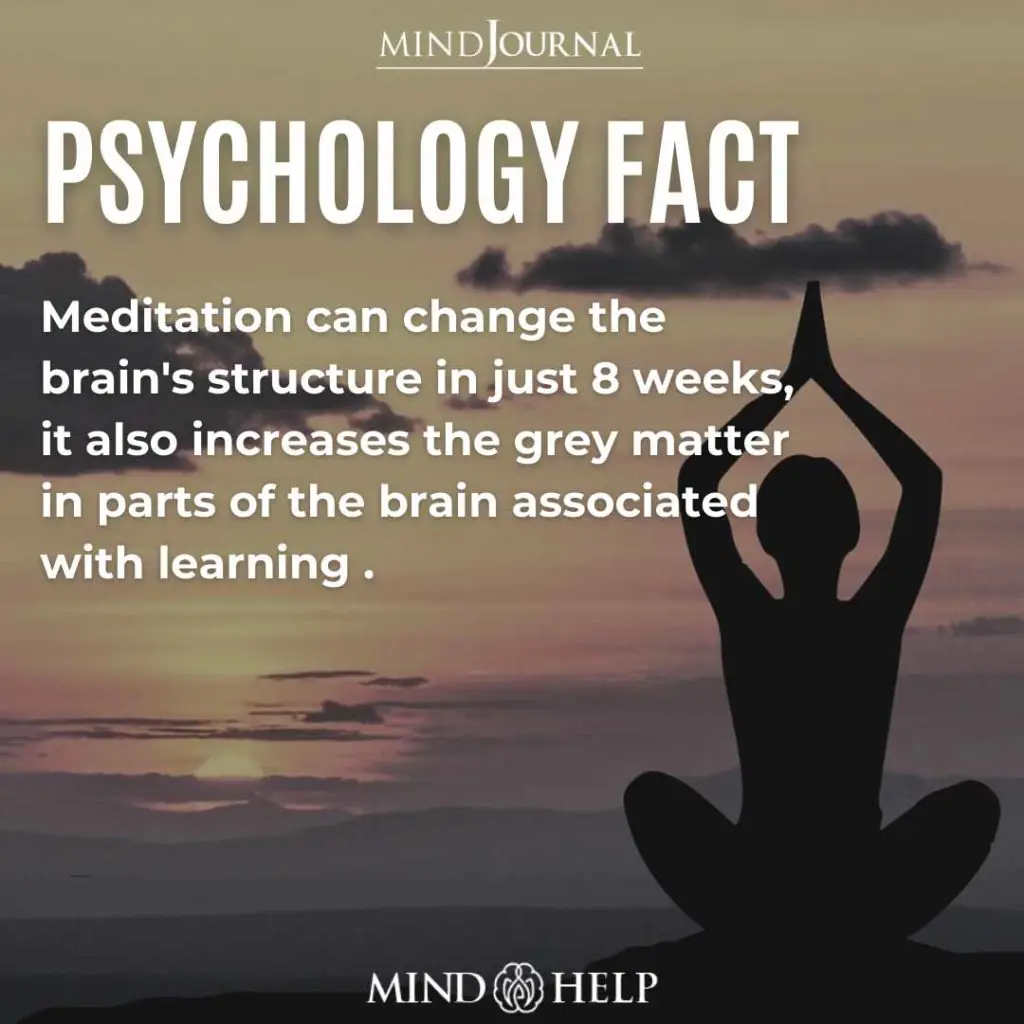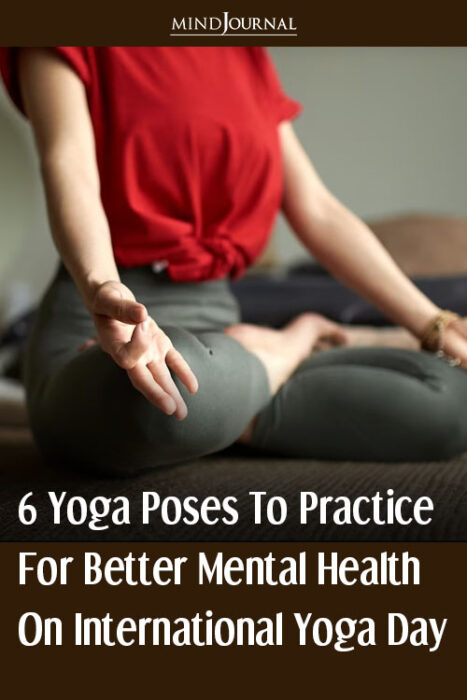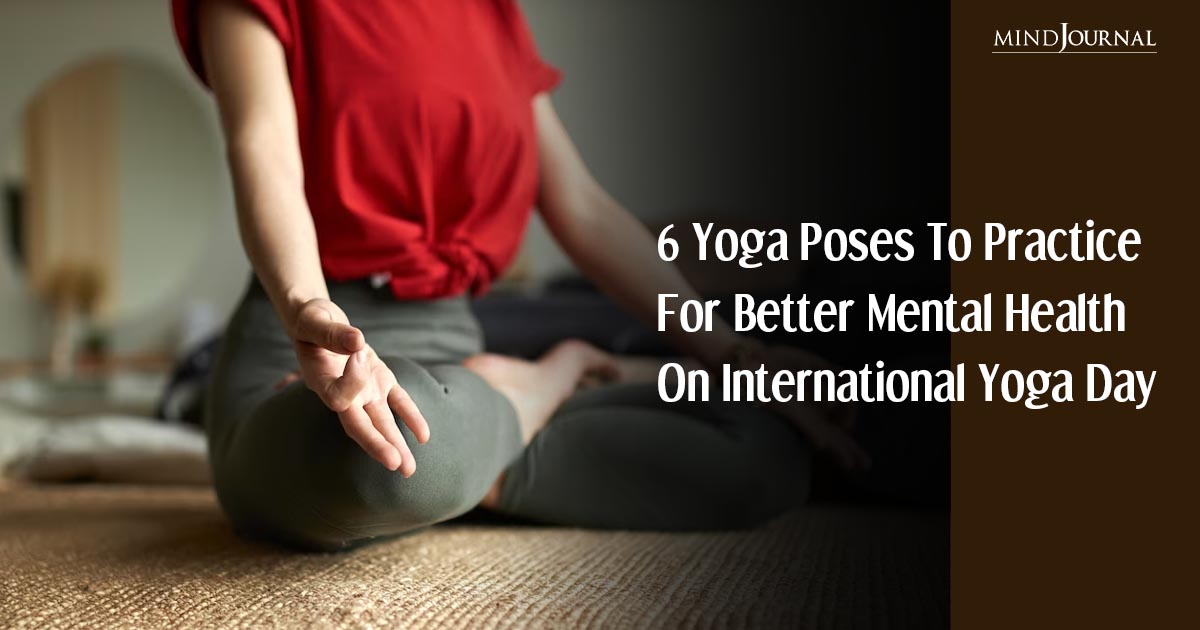Yoga for mental health has truly made a name for itself in recent times. It’s like a powerful superhero that combines physical postures, deep breaths, and calming meditation to give our minds the ultimate relaxation. And as reported by Hindustan Times, there are a few yoga poses for mental health that works wonders when it comes to mental well-being.
The meditative aspects of Yoga helps calm the mind, improve focus, and promote inner peace.
By incorporating Yoga into our lives, we can cultivate a healthier mind-body connection, finding balance, serenity, and improved mental health. Additionally, Yoga encourages self-care and self-compassion, fostering a positive relationship with oneself.
It is important to note, however, that while Yoga can be beneficial for mental health, it is not a substitute for professional mental health treatment. It is recommended to consult with a healthcare provider or mental health professional for personalized guidance and support.
Here are five Yoga exercises for mental health that are particularly beneficial for improving your mental clarity, peace of mind, and happiness which is why you should definitely practice them on International Yoga Day 2023.
Related: 6 Yoga Poses To Release Difficult Emotions
6 Best Yoga Poses For Mental Health
1. Savasana (Corpse Pose)
Without a doubt, one of the best yoga poses for mental health you can practice. Savasana is a foundational and deeply relaxing yoga posture that involves lying flat on your back with arms by your sides, palms facing up, and legs comfortably spread apart.
In Savasana, you surrender your body to the ground, allowing complete physical and mental relaxation. It is a pose of rest and integration, often practiced at the end of a yoga session.
Savasana promotes deep relaxation, reduces stress and anxiety, calms the nervous system, lowers blood pressure, and improves sleep quality. It provides a space for the mind to quieten, fostering a sense of inner peace and rejuvenation.

2. Pranayama (Breathing Exercises)
Pranayama is the practice of controlling the breath and is considered the cornerstone of Yoga. Techniques such as deep abdominal breathing, alternate nostril breathing, and Ujjayi Pranayama help regulate the nervous system, bring about calmness, and enhance mental clarity.
By focusing on the breath, pranayama cultivates mindfulness, reduces stress levels, and promotes emotional stability, making it an excellent practice for anxiety and depression management.
3. Balasana (Child’s Pose)
Balasana is a gentle, kneeling pose that provides comfort, calmness, and grounding. This posture stretches the hips, thighs, and ankles while releasing tension in the lower back and shoulders. Balasana helps to calm the mind, reduce stress, and promote relaxation.
It can be used as a resting position during a yoga practice or as a counterpose to more vigorous postures. It is important to listen to your body and modify the pose as needed, especially if you have any specific health concerns or injuries.
Related: How Yoga Can Help With Generalized Anxiety Disorder, Research Reveals
4. Viparita Karani (Legs Up the Wall Pose)
This is a rejuvenating yoga posture where you lie on your back with your legs extended up against a wall. This simple yet powerful pose allows for gentle inversion and provides a host of benefits.
By elevating your legs above your heart, Viparita Karani helps improve circulation and lymphatic drainage, reducing swelling and promoting relaxation.
It can also relieve tired or achy legs, soothe the nervous system, and calm the mind. This pose is particularly beneficial for those dealing with stress, fatigue, anxiety, or insomnia, as it encourages deep relaxation and a sense of grounding.
5. Uttanasana (Standing Forward Bend Pose)
One of the best yoga poses for mental health, Uttanasana is a foundational yoga posture where you fold forward from a standing position, reaching towards your feet with your hands or fingertips. This pose provides a deep stretch to the hamstrings, calves, and hips, as well as gently decompresses the spine.
Uttanasana also promotes a sense of release and relaxation, allowing tension to melt away from the neck, shoulders, and back.
Additionally, this pose can improve blood circulation to the brain, calm the mind, and alleviate stress and anxiety. Uttanasana offers a rejuvenating experience, leaving you feeling grounded, refreshed, and mentally invigorated.
6. Siddhasana (Accomplished Pose)
Again, one of the best yoga exercises for mental health, Siddhasana is a classical seated posture used in yoga and meditation practices.
It is considered one of the most effective and powerful sitting poses for spiritual and energetic purposes. This pose is often used for meditation due to its ability to create a calm and focused state of mind.
The alignment of the spine in Siddhasana promotes mental focus and concentration, making it easier to engage in contemplative practices. Siddhasana is said to awaken and direct the flow of prana (life force energy) in the body, leading to increased vitality and improved overall health.
Daily yoga for mental health fosters a sense of calmness and inner peace, improves sleep quality, and cultivates a positive outlook on life. It provides a holistic approach to wellness, allowing individuals to experience physical vitality and mental clarity on a daily basis.
Yoga, with its versatility, is accessible to individuals of all ages and physical abilities. These Yoga practices mentioned above offer invaluable tools to navigate life’s challenges, manage stress, and nurture a profound connection between the mind, body, and spirit.
Related: Studies Show How Yoga Will Help You Fight Depression
Whether you’re a beginner or an experienced practitioner, incorporating these yoga exercises for mental health into your daily routine can contribute to optimal mental health and a more balanced and fulfilling life.
Happy International Yoga Day!!









Leave a Reply
You must be logged in to post a comment.